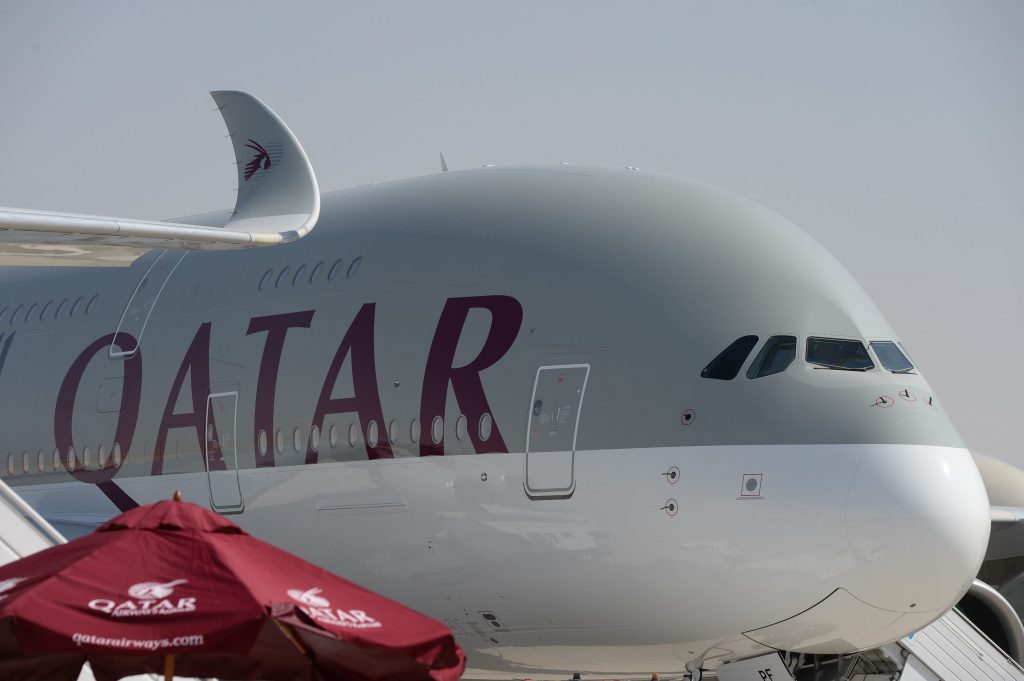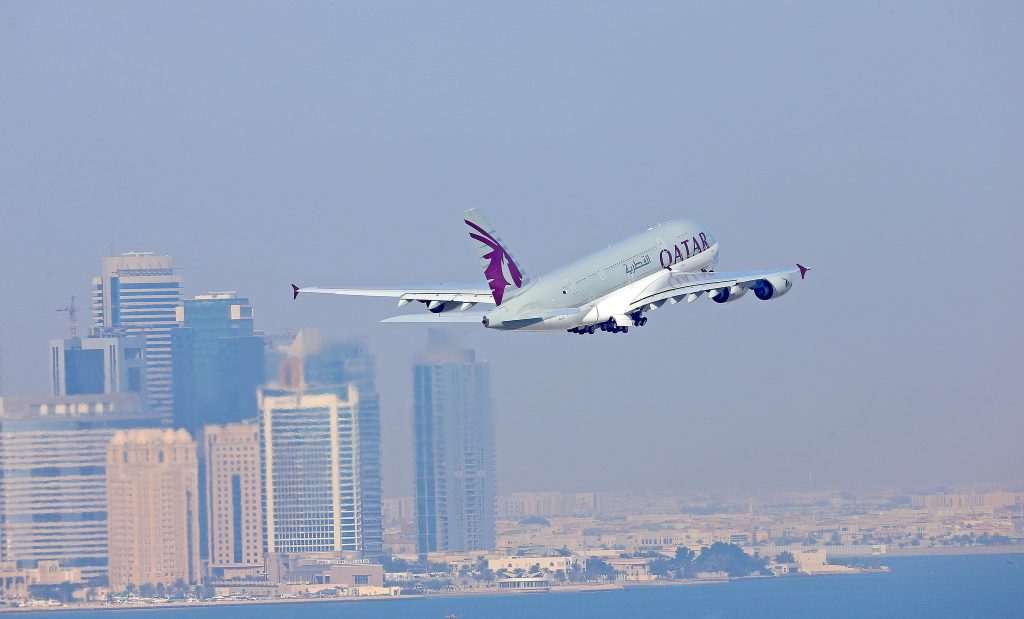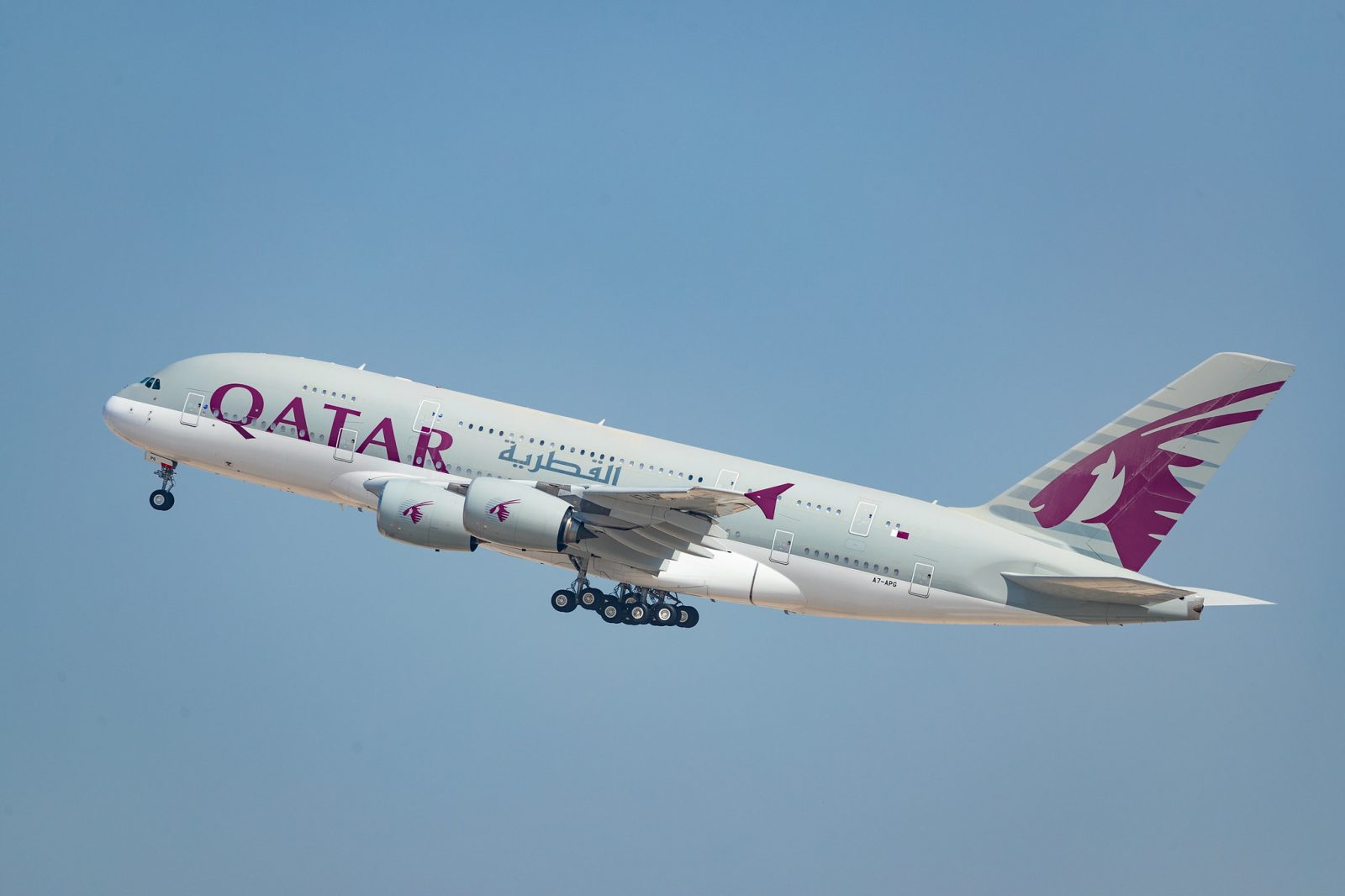For most of the pandemic, Qatar Airways chief executive Akbar Al Baker was busy trashing the inefficient and gas-guzzling Airbus A380 superjumbo. The Doha-based airline had grounded its entire 10-strong fleet of quad-engined double-deck A380’s in favour of efficient next-generation aircraft like the Boeing 787 Dreamliner and the Airbus A350 – unlike, Al Baker was keen to point out, some of its rivals (read Emirates).
With the pandemic likely changing international travel demand and behaviours for years to come, it would surely take a miracle for Qatar Airways to bring back its superjumbos, Al Baker claimed.

But Qatar Airways kept its A380’s close at hand, parked at an old airfield just across the road from its hub at Doha Hamad International Airport just in case they were needed. On Thursday, the first of five recommissioned superjumbos took off from Doha’s old airport for the (very) short flight to Hamad International.
It wasn’t, however, a miracle that had resulted in Qatar Airways bringing back its A380’s. In fact, judging by Al Baker’s most recent comments on the issue, it’s the very last thing that the airline wanted to do. Its hand, though, has been forced by an issue with its newest, most efficient and greenest jets.
“The recent grounding of 19 Qatar Airways A350 fleet has left us with no alternative but to temporarily bring some of our A380 fleet back on key winter routes,” Al Baker claimed on Friday.
“These groundings are due to an ongoing issue relating to the accelerated degradation of the fuselage surface below the paint, which as yet remains an unresolved matter between Qatar Airways and the manufacturer for which the root cause is yet to be understood,” the often outspoken chief executive continued.
The groundings were ordered by Qatar’s air safety regulator, although the decision remains at odds with findings from both Airbus and the European Air Safety Agency (EASA) who sent inspectors to Doha to judge how serious the situation was for themselves.
Inspectors concluded that although work will be needed to address the degradation, the issue doesn’t pose an airworthiness concern and the planes should be allowed to continue flying in the meantime.

Airbus has provided detailed instructions to other A350 operators on how to strip and repaint the aircraft and the aerospace giant says no further intervention is required. Other airlines successfully operating the A350 haven’t shared similar concerns, although Qatar Airways was the first-ever operator of the A350.
Al Baker remains unconvinced. “We continue to strongly urge Airbus to prioritize their investigations into the conclusive root cause of the issue affecting the A350 aircraft type, and ensure it proposes a permanent solution at the earliest opportunity to repair the damage and correct the underlying root cause,” he said on Friday.
With the dispute rumbling on and both sides seemingly at deadlock, the A350’s remain grounded. In the meantime, Qatar Airways refuses to take delivery of any more A350’s as it struggles to win concessions from Airbus.
It couldn’t have come at a worse time. The world is reopening, travel restrictions are being dropped and passenger demand is resurgent.
Qatar Airways has already brought back some older A330 jets to meet the increase in demand but a peak in demand is expected over the coming holiday season. At least five A380’s are being brought back into service but the airline has left the door open to reinstating the entire fleet should demand necessitate it.
For now, the A380 will be used on flagship routes between Doha and London Heathrow and Paris Charles de Gaulle. How long for, though, remains uncertain. Al Baker remains adamant the return of the A380 is strictly temporary despite the cost of bringing it back to service.
The superjumbos won’t even be used for commercial flights for another month – the lag is so that pilots and cabin crew get reacquainted with the aircraft, which would suggest the A350 debacle won’t be resolved anytime soon either.
Related
Mateusz Maszczynski honed his skills as an international flight attendant at the most prominent airline in the Middle East and has been flying ever since... most recently for a well known European airline. Matt is passionate about the aviation industry and has become an expert in passenger experience and human-centric stories. Always keeping an ear close to the ground, Matt's industry insights, analysis and news coverage is frequently relied upon by some of the biggest names in journalism.








